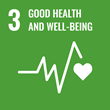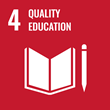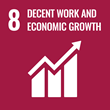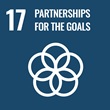
Project information
Augmented Social Play (ASP): smartphone-enabled group psychotherapeutic interventions that boost adolescent mental health by supporting real-world connection and sense of belonging
(ASP)
- Project Identification
- 101080665
- Project Period
- 9/2023 - 8/2027
- Investor / Pogramme / Project type
-
European Union
- Horizon Europe
- Cluster 1 - Health
- MU Faculty or unit
-
Faculty of Informatics
- Priv.-Doz. Dipl.-Ing. Dr. Simone Kriglstein
- Mgr. Eliška Cigánová
- Mgr. Bc. Nicol Dostálová
- Vinaya Rajan Tawde
- Other MU Faculty/Unit
- Faculty of Arts
- Project Website
- https://www.augmentedsocialplay.com/
- Cooperating Organization
-
Norwegian University of Science and Technology
University of Birmingham
University College Dublin/Nattional University of Ireland
Karl Landsteiner University of Health Sciences
University of Algarve
Make Real Ltd
Unicorn Theatre London Limited
Queen Mary University of London
Académico Torres Vedras
This project will develop Augmented Social Play (ASP), a new digital intervention format which uses smartphones to deliver real-world face-to-face group psychotherapeutic experiences, and create supportive communities. Augmented Social Play combines creative storytelling, contemporary technology, and evidence-based psychology to deliver Augmented Reality-facilitated, face-to-face collaborative experiences which boost mental health by providing insight into alternative perspectives, reducing stigma, increasing group cohesion, and encouraging positive peer relations – fostering a greater sense of belonging and connectedness. We want to use ASP totherefore tackles head-on the dramatic increases in social isolation and associated other mental health problems experienced by young people with the rise of social media use driven by digitalization and associated social transformations, which have been exacerbated by the Covid-19 pandemic.
We have established the feasibility of ASP through a proof-of-concept at TRL 3. Through our work on this proof-of-concept, we have defined some pillars of ASP: (1) a shared fictional narrative that the entire group becomes part of, with elements of roleplay and immersive audiovisual storytelling; (2) gameplay, guided by smartphones, that steers players together for real-world interaction and co-operative problem-solving; (3) implicit embodied psychoeducative learning based on experience; (4) creating a safe space for a group to reflect on complex and difficult topics; (5) compatibility with entry-level smartphones (or tablets) with no prior training or external facilitation required.
Now, in a transdisciplinary project spanning academia, industry and the arts, we want to develop the first full-scale ASP intervention to TRL 5/6 – referred to here as ASP #1. This intervention, co-developed with young people in multiple countries while rooted in established evidence-based psychotherapeutic methodologies, will support mental health at the onset of adolescence by focusing on the concept and experience of belonging within social groups, while exploring perceptions, experiences and strategies around mental health. We will implement this intervention in schools in Portugal, Serbia and the UK, using strategies informed by a policy review, and evaluate its efficacy, cost-effectiveness and implementation in ord
Sustainable Development Goals
Masaryk University is committed to the UN Sustainable Development Goals, which aim to improve the conditions and quality of life on our planet by 2030.
Publications
Total number of publications: 11
2025
-
Augmented Sketching as Interactive Markers: Generating Heightmaps in Mobile AR
VINCI '25: Proceedings of the 18th International Symposium on Visual Information Communication and Interaction, year: 2025
-
Demonstrating Ruh: A Serious Mobile AR Game Exploring 3D Interactive Markers to Harmonise Physical and Virtual Realities
Proceedings of the Extended Abstracts of the CHI Conference on Human Factors in Computing Systems, year: 2025
-
Engaging Users Through Play: Exploring Interactive Methods for Collecting Feedback in HCI
Proceedings of the Extended Abstracts of the CHI Conference on Human Factors in Computing Systems, year: 2025
-
Exploring the Fit: Analysing Material Selection for Interactive Markers in MAR Games through Co-Design
n Proceedings of the 2025 CHI Conference on Human Factors in Computing Systems (CHI '25), year: 2025
-
Challenges and Potentials of Pro-Social Collaborative Play in Extended Realities
Interactions, year: 2025, volume: 32, edition: 2, DOI
-
Mobile Augmented Reality: A Systematic Review of Current Research and the Untapped Potential of Interactive Marker-Based Games
Proceedings of the 20th International Conference on the Foundations of Digital Games, year: 2025
2024
-
FoRBT - Using Mobile Augmented Reality for Making Gameplay Immersive and Engaging
Year: 2024
-
Proceedings of the MuM'23 Workshops on Making a Real Connection and Interruptions and Attention Management co-located with 22nd International Conference on Mobile and Ubiquitous Media (MuM 2023)
Year: 2024, type: Editorship of scientific publication
2023
-
From Bin to Playin’: Give Vintage Objects a New Purpose as Game Controllers
Extended Abstracts of the 2023 CHI Conference on Human Factors in Computing Systems (CHI EA '23), year: 2023
-
Making A Real Connection - Workshop @ 22nd International Conference on Mobile and Ubiquitous Multimedia (MUM 2023)
Year: 2023, type: Workshop





